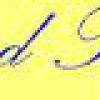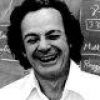 106
106Q1. n = 21037511
The divisors will be a perfect square iff we choose them in the form
45.93.255 i.e. there are (5+1)(3+1)(5+1) ways = 144 ways
Q2. n=28.39
Select say 20 then the product of the divisors will be (2030)(2031)...(2039)
= 39*10/2 = 345
Select 21 then the product of the divisors will be
(2130)(2131)...(2139)
= 21039*10/2 = 210345
similarly continuing we'll get 345*920+10+20+...+80
= 27135.4180
 106
106A shortcut which i had developed was: for the product of divisors is
Let the no. be n which is of the form
n = ak.bl.cm....
then product of divisors = n(total no of divisors)/2
Applying in Q2. it is (44.273)9*10/2 = 418027135
Applying it in Q3. it is (22.33.53)3*4*4/2 = (22.33.53)24
 24
24Solution appears correct [1]
 1
1for Q3. answer is 260.390.5180.....i solve 1st two....but din get answer 4 3rd
 1
1question is not wrong.....solution is not wrong either because it came in 1 f da test.
 106
106so what if it came in the test???
I calculated using the method ive done in #2 and it came out to be what I have written in #3.
I am perfectly sure that the answer given is wrong
 66
66For Q3) use the fact that if the number N has a prime factorization given by
N = p1k1 p2k2 p3k3 ... prkr
where pi's are the prime factors, then the exponent ai of the prime pi appearing in the product of divisors (assuming that N is also one of them) is given by
ai = 12 ki (k1 +1)(k2 +1)(k3 +1).... (kr +1)
If N = 22 33 53
Then in the product of the divisor the exponent of
2 → 12 2 (3) (4) (4) = 48
3 → 12 3 (3)(4)(4) = 72
5 → 12 3 (3)(4)(4) =72
 1
1thank u archana.....ashish and kaymant sir..exactly the same question(just values changed) came in ftse and i solved it right thanks to u guys.......thanks to tiit